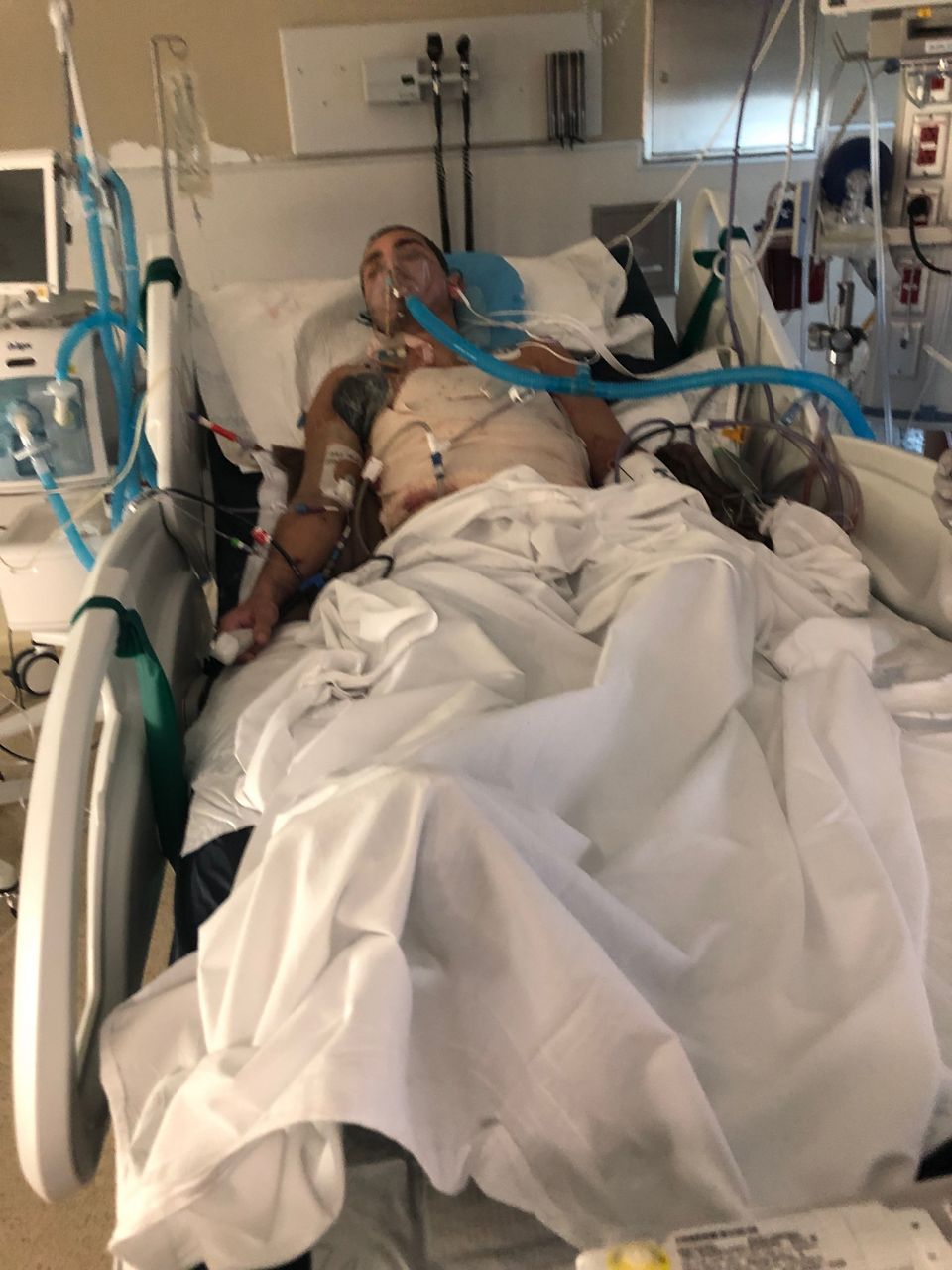A group of veterans says the military failed them after receiving poor health care treatment, and are hitting a wall receiving compensation for malpractice.
Dez Del Barba
Dez Del Barba comes from a military family, so it was not a surprise when he enlisted in 2019.
He entered basic combat training at Ft. Benning, now called Ft. Moore, in Georgia.
“I was super excited,” Del Barba said. “Obviously nervous, but good nervous.”

Around a month into training, dozens of recruits came down with strep. Despite receiving a positive strep test, Del Barba said the military medical office that tested him never told him he was infected.
“It was a Friday and they never notified me, and so the next 72 hours I was still positive for strep A,” Del Barba said.
Without treatment, he got worse.
He said the strep turned into a flesh-eating disease known as necrotizing fasciitis. He was in a coma for two weeks and needed multiple surgeries. Today, the once star lacrosse player is without a leg. His other leg is beyond recognition.
“It was super painful, just something I never thought I’d be going through, because a medical provider didn’t properly want to do their job,” Del Barba said.
At the time, Del Barba had no way of getting compensation for what he said was the military’s error.

Military medical malpractice claims
Under the Feres Doctrine, military hospitals and physicians were largely immune from medical malpractice claims.
A law signed by then-President Donald Trump later that year, called the SFC Richard Stayskal Military Medical Accountability Act, changed the rule by allowing service members to file medical malpractice claims for issues unrelated to their military duties, but still caused by a Department of Defense health care provider.
The legislation was a win for Del Barba and other victims who suffered malpractice that had nothing to do with their military duties.
But today, almost none of the claims filed under the law have been approved.
Of the 597 claims filed under the law, only 20, or 3%, have been approved for payment, according to a report by Military.com.
“The DOD implementation of this has been a disaster,” said (R-NC) Rep. Richard Hudson, who first helped introduce the original bill to allow service members to file the claims. “I don’t trust the DOD to adjudicate these claims fairly because their track record so far has been terrible.”
Hudson has signed onto a new bill known as the HERO Act. It allows service members to take their claims to the federal courts, taking them out of the hands of the Department of Defense.
The bipartisan bill was introduced by (R-CA) Rep. Darrell Issa and also has the support of Democrats, including (D-TX) Rep. Joaquin Castro.
"I appreciate that the DOD subsequently established channels to help victims, but I'm disappointed that only a small percentage of submitted claims have been approved. The HERO Act is a bipartisan way to remedy that problem and help victims get the recourse they deserve,” Castro said in a statement.
Lauren Palladini
“Congress passed that bill … thinking the DOD would do the right thing and they’ve completely mishandled all of this,” said Lauren Palladini, who filed a claim for medical malpractice against the Defense Department. “The DOD has not investigated any of the medical providers that were in my hospital room.”

Palladini was in the third brigade at Ft. Bragg, now called Ft. Liberty, in North Carolina, when she said in March 2019 a cessarian section she received at the base medical center went awry.
Five days after her daughter was born, she said she lost 900 ml of blood.
It turned out the doctor botched the c-section, and the facility, she said, failed to let her know. Doctors had to perform a hysterectomy to save her life.
Today she said she suffers with extreme PTDS and “the mental effects of being 28 years old and not having my fertility.”
“A few months ago, my staff and I met with Lauren Palladini, a San Antonio veteran. I told her I would do everything I could to pass the HERO Act and help her (and others like her) get justice,” Castro said in a statement.
HERO Act
In June, Palladini and Del Barba traveled to Washington to lobby lawmakers to support the HERO Act.
Del Barba now struggles to walk, but his fight hasn’t stopped. It’s just moved from the training grounds to the halls of Congress.
“I’m upset at the military, yeah, they definitely failed me. However, it makes me even more angry, because I’m not the only one, they failed countless others. Others that don’t have a voice anymore because they’re deceased, so it makes me very angry,” Del Barba said. "I support the military though. I’ll always be proud of the military, but there needs to be a change within the system.”
Del Barba is still waiting for a decision on his medical malpractice claim. Palladini’s claim was denied, but she is appealing it.
The HERO Act has been referred to the House Judiciary Committee, but it’s unclear whether there are the votes for passage.
Issa's office said he "knows [the bill] targets a continuing challenge and unresolved situation, and represents the kind of solution-oriented idea that can gain an even wider consensus."
An amendment, introduced by (D-CA) Rep. Katie Porter, in the National Defense Authorization Act that passed the House in June, would require the Government Accountability Office to investigate the Defense Department’s handling of malpractice claims filed by service members. It would require a comparison of the military malpractice compensation to similar civilian malpractice claims.
A Defense Department spokesperson told Spectrum News that “the Department is proud of the world-class medical care it provides to its more than 9 million beneficiaries through the Military Health System.”



